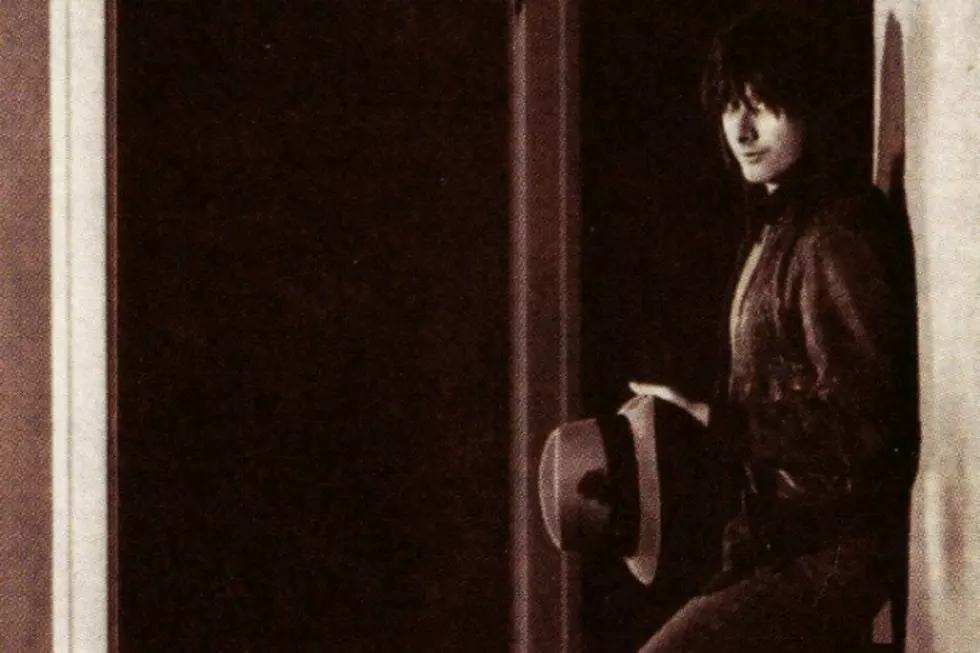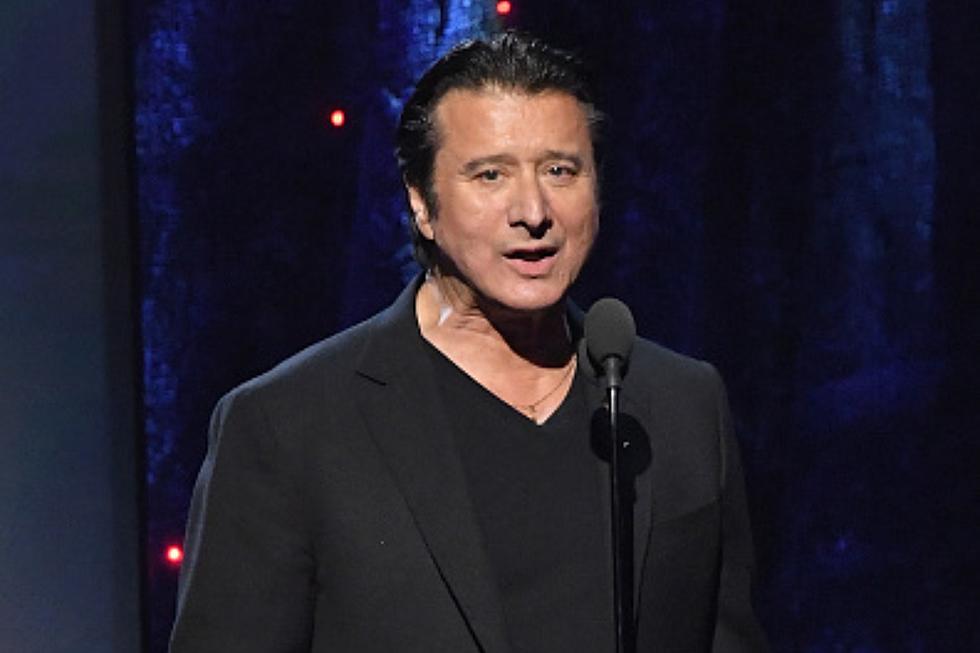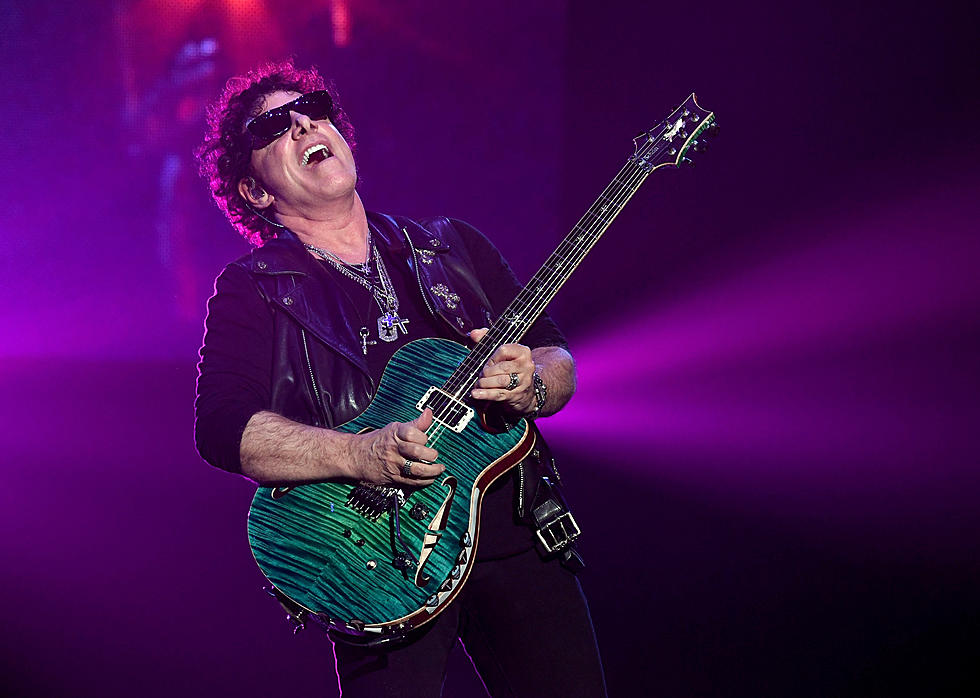
When Steve Perry Finally Stepped Out With ‘Street Talk’
After the back-to-back-to-back Top 10 triumphs of 1980's Departure, 1981's Escape, and 1983's Frontiers, the members of Journey were on top of the world – and ready to experiment with solo projects.
The most high-profile hit of the bunch was Street Talk, released by singer Steve Perry in April 1984. That made perfect sense, given that Perry was the voice of the group's biggest hits, but it didn't mean executives at Journey's label, Columbia Records, were eager to see him step out on his own.
"They were scared to death," Perry recalled during an interview with Melodic Rock in 2011. "They thought that I was going to spend a lot of money and they weren't sure what I was going to do. But you know, I ended up doing it relatively inexpensively and quickly because I had great musicians. There were no computers back then. Everything you're hearing on the Street Talk record is absolutely performed in the studio and captured on a piece of tape. ... It was a special time in my life, I think."
To casual fans, the sound of Steve Perry solo may not have seemed appreciably different from his work with Journey, but behind the scenes, the music came from a much more casual place. "The kind of neuroses than you feel in Journey because of the pressure can tend to sterilize your work," Perry admitted during an August 1984 interview with Kerrang. With this album I just said 'Fuck it, I got into this business to hear my own songs as they should be heard, to see the ideas take form, to build a track – that's all. That's what I'm gonna do with this record."
Appearing on Good Morning America, Perry added: "It was a no-pressure situation. I just said 'I'm gonna have some fun in the studio, more fun than I've ever had so far.' ... It's like my first album to me."
Street Talk ended up being like his first album in more ways than one: It also found Perry reuniting with a member of Alien Project, his pre-Journey group in the '70s. "I was in a band with Craig Krampf years ago, and Street Talk was gonna be the name of our band," Perry recalled. "Unfortunately, a situation happened where one of our members got killed in a car accident, so after that happened, we disbanded, of course. The name Street Talk has still been floating around. You know, it was appropriate since I got back together with Craig one more time that we'd call it 'Street Talk.'"
With different personnel, naturally, came a different sound – and with Krampf on board, Perry returned organically to his musical roots. "I went for a whole different thing entirely. I went for a different production sound, I went for a different band sound. Different vocal register. Things that I used to do an awful lot before I joined Journey," Perry mused. "I came from R&B. All of my friends that used to be in bands with me years ago have called me and said, 'This album sounds more like the Steve Perry I used to work with than anything I've ever heard you do.' It does have a little bit of that old flavor that I used to work with."
Happy as the vibes surrounding the Street Talk sessions might have been, the album didn't spring from an entirely cheerful place. As Perry later recalled, he only decided to cut a solo album at all because guitarist Neal Schon had already started a side project of his own with keyboardist Jan Hammer.
"Neal did a solo album first," Perry pointed out during a 2006 appearance on Off the Record. "I said, 'You shouldn’t do this.' I told the manager, I said, 'Herbie [Herbert], you know, don’t do this. You know, it’ll mess with the group.' I said that to the manager, and the manager told Neal, and Neal wanted to do it. He’d worked with Jan Hammer once. So then, he did that, and we did another record, and he did another one. And I said, 'Okay now, you’re poking the bear here. I’m gonna do one.' And that’s when I did Street Talk."
Watch Steve Perry Perform 'Oh Sherrie'
Schon and Perry weren't alone in their solo pursuits. Drummer Steve Smith started the jazz project Vital Information, and assuaged Perry's fears by pointing out the value of releasing a little creative tension outside the framework of the band.
"The theory coming from Steve, and I kind of understood it, was that everybody’ll go out and be able to express themselves musically in some other areas, and then when we reconvene, perhaps we will have discovered or found things that we can bring to the group to help the group evolve. And so I thought that was okay," Perry told GQ in 2008. "So, after Neal did his second solo album, I went to L.A., and in about three weeks, I wrote Street Talk, which was a bit of a nod to the earlier band, and to the bass player who’d passed. And with some great studio musicians and co-writers, we just knocked the record out and we released it."
The record's quick birth stood in stark contrast to the painstaking process of finishing Journey's albums, but those fast-paced sessions didn't hurt Street Talk on the charts, where it quickly went platinum and spun off the Top Five hit "Oh Sherrie" along with three more Top 40 singles: "Foolish Heart," "She's Mine," and "Strung Out." Thus established as a solo star, Perry later admitted that he suffered a crisis of faith over whether to return to a band whose musical bond seemed to be fraying.
"When the Street Talk record was done, and it sold over a million copies ... honestly, I don’t know what to do," Perry told Off the Record in 1999. "And it wasn’t that I was wimping out on my ability to make a decision. I just was confused, because everything had led to that point. The band was a little singed. We were all a little crispy. A new solo career had just opened up. It was enticing."
But ultimately, Perry stressed to GQ, "In my heart of hearts, I was never gonna leave Journey. I had no desire to. At the end of the last video from my solo album, for 'Foolish Heart,' there’s an extra tag-on section that I shot for the video, to just tell everybody that that particular phase of my career was now over and now I’m back to Journey. ... I cut to stage right, facing me walking offstage, over the shoulders of Jon [Cain], Neal, Ross [Valory] and Steve. Giving me high fives. Like, 'Hey, man, that was great! Let’s go have some pizza. Right on!' So that was like a nod to Journey from my solo side. 'Let’s go fuckin’ be Journey again.' I wouldn’t have done that if I had any desire to leave the group. I didn’t!"
Perry may not have had any desire to leave Journey, but when Journey reconvened to record what would become 1986's Raised on Radio, the freedom Perry experienced while recording Street Talk gave him the confidence to begin taking more control over the band's direction. The result was an album whose sound bore a distinct similarity to his solo work. By the following year, Journey was back on indefinite hiatus, leaving Perry free to follow up Street Talk.
Unfortunately, subsequent efforts proved harder to complete; instead of getting in and out of the studio in three weeks, Perry stayed mostly off the radar for a decade, taking different sets of recordings to various stages of completion, only to see them end up the shelf for one reason or another. Much of the material he worked on during the '80s wouldn't see release until 1998, when he rescued a batch of vaulted songs for his Greatest Hits + Five Unreleased LP, and he's only issued two other solo albums since Street Talk.
Of course, that doesn't mean he's walked away from music. Perry reunited with Journey briefly in the '90s, but then promptly they broke up again – this time, apparently for good.
Journey Solo Albums Ranked
More From 98.7 WFGR










